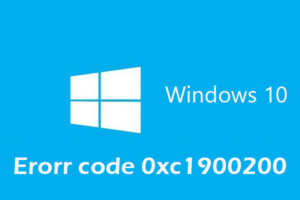-
Table of Contents
- Enhancing User Experience: Improving Windows 11 Start Menu Recommendations
- Analyzing User Feedback: Microsoft’s Ongoing Efforts to Refine Start Menu Suggestions
- Personalization and Customization: Innovations in Windows 11 Start Menu Recommendations
- Artificial Intelligence Integration: Advancements in Tailored Start Menu Recommendations for Windows 11
- Q&A
“Enhancing your Windows 11 experience with smarter Start Menu recommendations.”
Microsoft is continuously striving to enhance the user experience with its operating system, Windows 11. One area of focus for improvement is the Start Menu recommendations. Microsoft is putting in significant efforts to make these recommendations more useful and relevant to users.
Enhancing User Experience: Improving Windows 11 Start Menu Recommendations
Microsoft still desperately trying to make Windows 11 Start Menu recommendations more useful
In the ever-evolving world of technology, user experience is a key factor in determining the success of a product. Microsoft, a giant in the software industry, understands this well and has been continuously working to enhance the user experience of its operating systems. One area where Microsoft has been focusing its efforts is the Start Menu recommendations in Windows 11.
The Start Menu is a central component of the Windows operating system, providing users with quick access to their most frequently used applications and files. In Windows 11, Microsoft introduced a new feature that displays personalized recommendations in the Start Menu. These recommendations are meant to help users discover new apps and content that they might find useful based on their usage patterns and preferences.
However, the initial implementation of the Start Menu recommendations in Windows 11 received mixed reviews from users. Many found the recommendations to be irrelevant or unhelpful, leading to frustration and confusion. Microsoft quickly realized that there was room for improvement and has been working tirelessly to make the recommendations more useful.
One of the main challenges Microsoft faced was ensuring that the recommendations were truly personalized and relevant to each individual user. To achieve this, Microsoft has been leveraging machine learning algorithms and artificial intelligence to analyze user behavior and preferences. By collecting data on app usage, search queries, and other interactions, Microsoft aims to create a more accurate profile of each user’s interests and needs.
Another aspect that Microsoft has been focusing on is the presentation of the recommendations. In the initial version of Windows 11, the recommendations were displayed in a static grid format, which made it difficult for users to quickly scan through the suggestions. Microsoft has since introduced a more dynamic and visually appealing layout, with larger tiles and clearer labels. This new design allows users to easily browse through the recommendations and find what they are looking for.
Furthermore, Microsoft has been actively seeking feedback from users to further refine the Start Menu recommendations. Through user surveys, focus groups, and beta testing programs, Microsoft has been able to gather valuable insights and identify areas for improvement. By listening to the feedback of its users, Microsoft can better understand their needs and preferences, and make the necessary adjustments to enhance the user experience.
It is worth noting that improving the Start Menu recommendations is not an easy task. Microsoft must strike a delicate balance between providing useful suggestions and respecting user privacy. While personalized recommendations can be helpful, they also require access to user data, which raises concerns about privacy and data security. Microsoft has made it a priority to address these concerns by implementing robust privacy controls and giving users full control over their data.
In conclusion, Microsoft is still desperately trying to make Windows 11 Start Menu recommendations more useful. Through the use of advanced technologies, user feedback, and a commitment to privacy, Microsoft is continuously working to enhance the user experience of its operating system. While there is still room for improvement, it is clear that Microsoft is dedicated to providing its users with a Start Menu that is both personalized and helpful. As technology continues to evolve, it will be interesting to see how Microsoft further refines its recommendations and sets new standards for user experience in the software industry.
Analyzing User Feedback: Microsoft’s Ongoing Efforts to Refine Start Menu Suggestions
Microsoft still desperately trying to make Windows 11 Start Menu recommendations more useful.
Since the release of Windows 11, Microsoft has been working tirelessly to refine the Start Menu suggestions feature based on user feedback. The Start Menu is a crucial component of the Windows operating system, providing users with quick access to their most frequently used applications and files. However, in previous versions of Windows, the Start Menu recommendations often fell short of users’ expectations, leading to frustration and a less than optimal user experience.
One of the main issues with the previous Start Menu recommendations was their lack of relevance. Users reported that the suggestions provided by Windows were often unrelated to their interests or work habits. For example, a user who primarily uses their computer for graphic design would frequently receive recommendations for gaming applications or productivity tools that they had no use for. This lack of personalization made the Start Menu suggestions feel like a wasted feature, as users had to manually search for the applications they needed instead of relying on the recommendations.
To address this issue, Microsoft has been actively collecting user feedback and analyzing it to improve the relevance of the Start Menu suggestions. By understanding the specific needs and preferences of individual users, Microsoft aims to provide more personalized and useful recommendations. This approach involves analyzing user behavior, such as the applications they frequently use and the files they access, to better understand their interests and work patterns.
In addition to analyzing user behavior, Microsoft is also leveraging machine learning algorithms to enhance the Start Menu recommendations. These algorithms can identify patterns and trends in user data, allowing for more accurate predictions of the applications and files that users are likely to need. By continuously learning from user interactions, the machine learning algorithms can adapt and improve the relevance of the suggestions over time.
Another aspect that Microsoft is focusing on is the presentation of the Start Menu recommendations. In previous versions of Windows, the suggestions were displayed in a static list format, which made it difficult for users to quickly scan and find the applications they were looking for. To address this issue, Microsoft has introduced a new layout for the Start Menu in Windows 11, featuring a grid of icons that are more visually appealing and easier to navigate. This new layout allows users to quickly locate and launch their desired applications, making the Start Menu suggestions more accessible and user-friendly.
Despite these efforts, Microsoft still faces challenges in making the Start Menu recommendations truly useful for all users. The diverse range of user preferences and work habits makes it difficult to create a one-size-fits-all solution. However, by actively listening to user feedback and continuously refining the algorithms and presentation of the suggestions, Microsoft is making significant strides towards improving the Start Menu experience.
In conclusion, Microsoft’s ongoing efforts to refine the Start Menu suggestions in Windows 11 demonstrate their commitment to providing users with a more personalized and useful experience. By analyzing user feedback, leveraging machine learning algorithms, and improving the presentation of the recommendations, Microsoft aims to address the previous shortcomings of the Start Menu and enhance its functionality. While challenges remain, Microsoft’s dedication to improving the Start Menu experience is a positive step towards creating a more efficient and user-friendly operating system.
Personalization and Customization: Innovations in Windows 11 Start Menu Recommendations
Microsoft still desperately trying to make Windows 11 Start Menu recommendations more useful
Personalization and Customization: Innovations in Windows 11 Start Menu Recommendations
In the ever-evolving world of technology, Microsoft has always been at the forefront of innovation. With the release of Windows 11, the company has once again demonstrated its commitment to providing users with a personalized and customizable experience. One area where Microsoft has focused its efforts is the Start Menu recommendations, aiming to make them more useful and relevant to each individual user.
The Start Menu has long been a central feature of the Windows operating system, providing users with quick access to their most frequently used applications and files. However, in previous versions of Windows, the Start Menu recommendations were often hit or miss, with users frequently finding themselves presented with irrelevant or outdated suggestions. Microsoft recognized this issue and set out to improve the functionality of the Start Menu recommendations in Windows 11.
One of the key innovations in Windows 11 is the use of artificial intelligence (AI) to power the Start Menu recommendations. By leveraging AI, Microsoft is able to analyze a user’s behavior and preferences to provide more accurate and personalized recommendations. This means that over time, the Start Menu will learn which applications and files are most important to each individual user and prioritize them accordingly.
To further enhance the usefulness of the Start Menu recommendations, Microsoft has also introduced a new feature called “Adaptive Cards.” Adaptive Cards are dynamic tiles that can display relevant information and actions based on the context of the user’s activities. For example, if a user frequently uses a particular application for work-related tasks, the Adaptive Card for that application may display recent documents or provide shortcuts to commonly used features.
In addition to AI and Adaptive Cards, Microsoft has also made improvements to the way users can customize their Start Menu. Windows 11 introduces a new layout that allows users to easily rearrange and resize the tiles on their Start Menu. This means that users can prioritize the applications and files that are most important to them, further enhancing the relevance of the Start Menu recommendations.
Furthermore, Microsoft has expanded the range of content that can be displayed in the Start Menu recommendations. In addition to applications and files, the Start Menu can now also suggest web content, such as news articles or weather updates. This provides users with a more holistic view of their digital world, allowing them to stay informed and connected without having to leave the Start Menu.
While these innovations represent significant improvements to the Start Menu recommendations in Windows 11, Microsoft is not resting on its laurels. The company is constantly gathering feedback from users and making iterative updates to further refine the functionality and usefulness of the Start Menu recommendations. This commitment to continuous improvement ensures that Windows 11 users will always have access to the most relevant and personalized recommendations.
In conclusion, Microsoft’s efforts to make the Start Menu recommendations in Windows 11 more useful and relevant are a testament to the company’s commitment to providing a personalized and customizable user experience. By leveraging AI, introducing Adaptive Cards, and allowing for greater customization, Microsoft has significantly enhanced the functionality of the Start Menu. With ongoing updates and improvements, Windows 11 users can expect the Start Menu recommendations to continue to evolve and adapt to their individual needs.
Artificial Intelligence Integration: Advancements in Tailored Start Menu Recommendations for Windows 11
Microsoft has long been known for its commitment to innovation and pushing the boundaries of technology. With the release of Windows 11, the company has once again demonstrated its dedication to improving the user experience. One area where Microsoft has focused its efforts is the Start Menu recommendations feature, which has been enhanced with the integration of artificial intelligence (AI) technology.
The Start Menu has always been a central component of the Windows operating system, providing users with quick access to their most frequently used applications and files. In previous versions of Windows, the Start Menu recommendations were based on a combination of user behavior and system-wide usage data. While this approach was effective to some extent, it often resulted in generic recommendations that did not necessarily reflect the individual user’s preferences and needs.
With the integration of AI technology, Microsoft aims to make the Start Menu recommendations more tailored and personalized. By analyzing a wide range of data points, including user behavior, preferences, and contextual information, the AI algorithms can generate recommendations that are more relevant and useful to each individual user. This means that the Start Menu will now be able to anticipate the user’s needs and provide them with the most appropriate suggestions.
One of the key advancements in the tailored Start Menu recommendations for Windows 11 is the ability to learn from user feedback. The AI algorithms are designed to continuously adapt and improve based on the user’s interactions with the recommendations. If a user consistently ignores or dismisses certain suggestions, the AI will take note of this feedback and adjust the recommendations accordingly. This iterative learning process ensures that the Start Menu becomes more accurate and personalized over time.
Another important aspect of the AI integration is the ability to take into account the user’s current context. For example, if the user is working on a specific project or task, the Start Menu can analyze the relevant files and applications and provide recommendations that are directly related to that context. This level of contextual awareness makes the Start Menu an even more valuable tool for productivity and efficiency.
Microsoft has also made efforts to address privacy concerns with the AI integration. The company has implemented strict privacy controls to ensure that user data is protected and used only for the purpose of improving the Start Menu recommendations. Users have the option to opt out of the AI integration altogether or to customize the level of data sharing according to their preferences.
While the AI integration in the Start Menu recommendations for Windows 11 is undoubtedly a significant advancement, it is not without its challenges. Developing AI algorithms that can accurately understand and predict user preferences is a complex task that requires ongoing research and development. Microsoft is committed to continuously refining and enhancing the AI capabilities to ensure that the Start Menu recommendations become even more useful and relevant over time.
In conclusion, the integration of artificial intelligence technology in the Start Menu recommendations for Windows 11 represents a significant step forward in improving the user experience. By leveraging AI algorithms, Microsoft has made the Start Menu more tailored and personalized, taking into account user behavior, preferences, and contextual information. With the ability to learn from user feedback and adapt to the user’s current context, the Start Menu becomes an invaluable tool for productivity and efficiency. While there are challenges to overcome, Microsoft’s commitment to innovation and improvement ensures that the Start Menu recommendations will continue to evolve and become even more useful in the future.
Q&A
1. Why is Microsoft trying to make Windows 11 Start Menu recommendations more useful?
Microsoft is aiming to enhance user experience and provide more relevant suggestions to improve productivity.
2. What changes are Microsoft making to the Windows 11 Start Menu recommendations?
Microsoft is implementing machine learning algorithms to personalize and refine the Start Menu recommendations based on user behavior and preferences.
3. Is Microsoft struggling to make the Start Menu recommendations more useful?
Yes, Microsoft is facing challenges in making the recommendations more effective and tailored to individual users.
4. Why is it important for Microsoft to improve the Start Menu recommendations?
Improving the Start Menu recommendations can help users discover new apps, features, and content, ultimately enhancing their overall Windows 11 experience.In conclusion, Microsoft is making efforts to enhance the usefulness of Windows 11 Start Menu recommendations.







![[Solved]: “Error Code 0xC004F050” in Windows 11 in No Time](https://www.tipsbin.net/wp-content/uploads/2023/08/8e64f519d2390bfc001a41744be2cbd4-300x199.jpeg)

